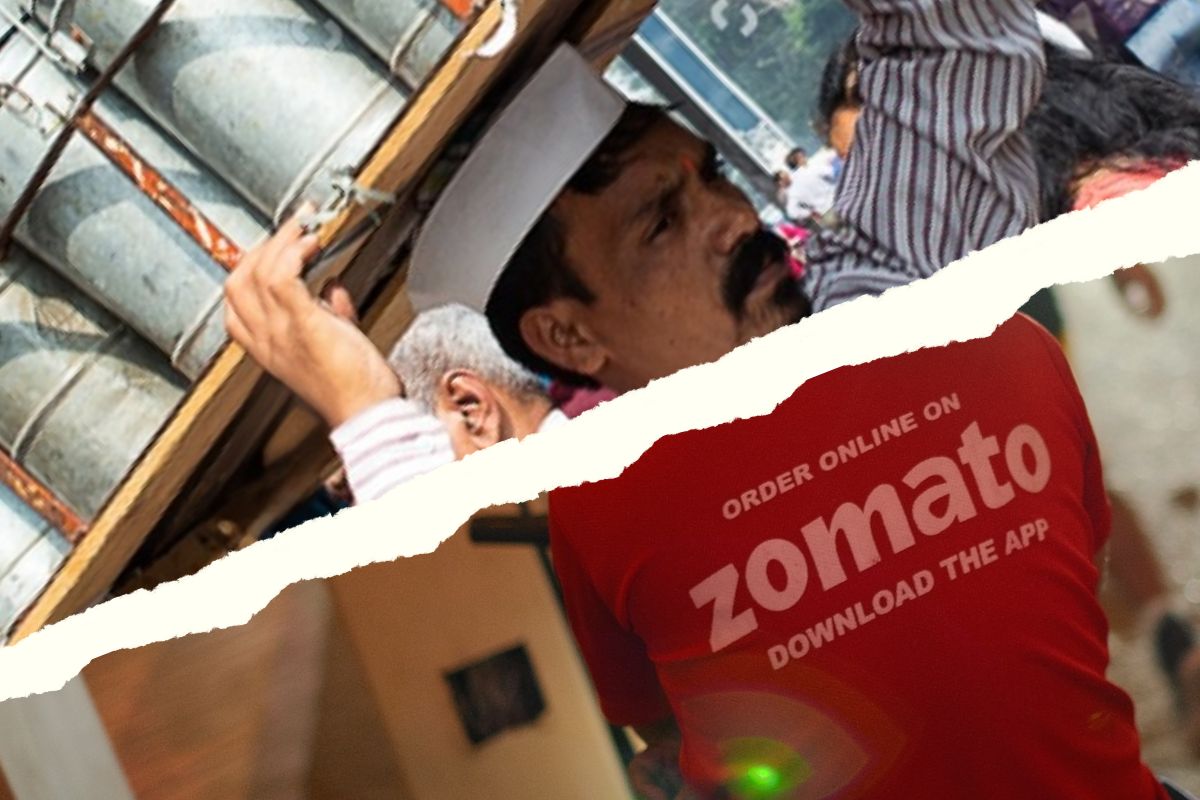MUMBAI, INDIA – The iconic dabbawalas of Mumbai, known globally for their impeccable lunch delivery service, are facing an unprecedented challenge from burgeoning online food delivery players like Swiggy and Zomato. As the urban workforce’s eating habits evolve, a fascinating clash of tradition and technology is unfolding.
The dabbawalas, who have been delivering home-cooked meals to office-goers for over 125 years, have a failure rate of just one in 16 million deliveries. They symbolize a timeless tradition that prioritizes personalized service and community connections.
On the other hand, the online food delivery platforms offer an array of restaurant options, convenience through mobile apps, and often heavy discounts. These modern players, backed by significant venture funding, are reshaping the food landscape in urban India.
Swiggy’s recent introduction of ‘Swiggy Daily,’ a subscription-based service providing homestyle food, is seen as a direct move to tap into the market traditionally held by dabbawalas. Other platforms are also exploring similar avenues to capture the charm of home-cooked meals.
The Impact on Dabbawalas
The dabbawalas, though resilient, are feeling the heat. The rise in urban female workforce participation, an increase in eating-out culture among the youth, and the convenience of app-based ordering has led to a slow shift away from the dabbawala services.
Subhash Talekar, President of the Mumbai Dabbawala Association, acknowledges the challenge but remains optimistic. “We believe in the personal touch, the connection with our customers. Technology can’t replace that,” he says.
A Balance of Tradition and Technology?
Some dabbawalas are adapting by incorporating technology into their operations, partnering with apps and offering online tracking. However, they remain committed to their core principles of community, reliability, and personal service.
The question looming over this clash is whether there is room for both tradition and technology in India’s rapidly changing food delivery landscape. Can the dabbawalas and online food giants coexist, or will one overshadow the other?
As consumer preferences continue to evolve, this clash between the dabbawalas and online food delivery players represents not just a business competition but a cultural tug-of-war. The outcome may very well define the future of food delivery in India’s bustling cities, weighing the value of tradition against the allure of modern convenience.
For now, the dabbawalas continue their daily cycles through Mumbai’s chaotic streets, delivering lunches with the efficiency that has earned them global admiration. Meanwhile, the online food delivery players are strategising and innovating, vying for a larger share of India’s appetite.



